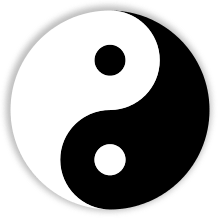Five Precepts (Taoism)
| Part of a series on |
| Taoism |
|---|
 |
|
Deities |
|
Holy places |
|
Organisations |
| Portal Taoism |
The Five Precepts in Taoism (Chinese: 五戒; pinyin: Wǔ Jiè; Cantonese: Ng Gye), constitute the basic code of ethics undertaken mainly by Taoist lay-cultivators. For Taoist monks and nuns, there are more advanced and stricter precepts. These precepts are very similar to the Buddhist Five Precepts, but with minor differences.
According to The Ultra Supreme Elder Lord's Scripture of Precepts, the five basic precepts are:
- The first precept: No Murdering;
- The second precept: No Stealing;
- The third precept: No Sexual Misconduct;
- The fourth precept: No False Speech;
- The fifth precept: No Taking of Intoxicants.
Their definitions can be found in an excerpt of The Ultra Supreme Elder Lord's Scripture of Precepts:
| “ |
|
” |
*The precept against Sexual Misconduct also outlines that sexual acts such as masturbation, premarital sexual conduct, adultery, prostitution, having intercourse with prostitutes, homosexual intercourse, etc., are all sexual misconducts. (Original commentary: Even if a man and a woman are married to each other, if they have intercourse too frequently, that is also considered Sexual Misconduct.)
**Smoking, the use of intoxicants other than alcohol, and the like, are also forbidden by the precept against Intoxicant-Taking.
See also
- Buddhist Five Precepts
- Ten Precepts (Taoism)
References
- "The Ultra Supreme Elder Lord's Scripture of Precepts"(太上老君戒經), in "The Orthodox Tao Store"(正統道藏)
- "The Great Dictionary of Taoism"(道教大辭典), by Chinese Taoism Association, published in China in 1994, ISBN 7-5080-0112-5/B.054